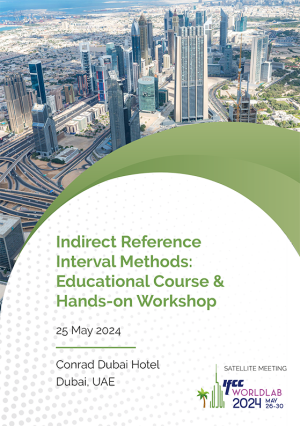“Laboratories are required to verify and/or establish reference intervals to enable the evidence-based interpretation of test results. However, establishment of reference intervals using direct sampling techniques is very often impossible due to practical, economic and ethical reasons. Similarly, verification techniques using a restricted amount of samples from healthy individuals are severely limited. Indirect methods to derive reference intervals have the potential to fill this well-recognized gap, and they have been gradually maturing, especially under the auspices of the IFCC Committee on Reference Intervals and Decision Limits (C-RIDL) and the IFCC Task Force on Global Reference Interval Database (TF-GRID).
However, application of indirect methods on laboratory data a-posteriori has many challenges, the most obvious being the mixed distribution of physiological and pathological test results in the input dataset. Additional challenges include removal of patients with multiple results and consistency of (pre-)analytical processes over the period of data collection, and correctly accounting for covariates, most importantly sex and age. Importantly, the choice of an appropriate statistical algorithm is of critical importance, and we have progressed from early techniques like Hoffman and Bhattacharya to advanced algorithms like TML, kosmic, and refineR.
In this workshop, we will
– Provide an educational opportunity for reference interval theory and statistical practice (EDUCATIONAL WORKSHOP), and
– Provide a workshop for hands-on, critical deployment indirect reference interval tools (refineR) using sample data that explores the technical principles and impacts (HANDS-ON-WORKSHOP)”
KA Sikaris, T Streichert, J Zierk










